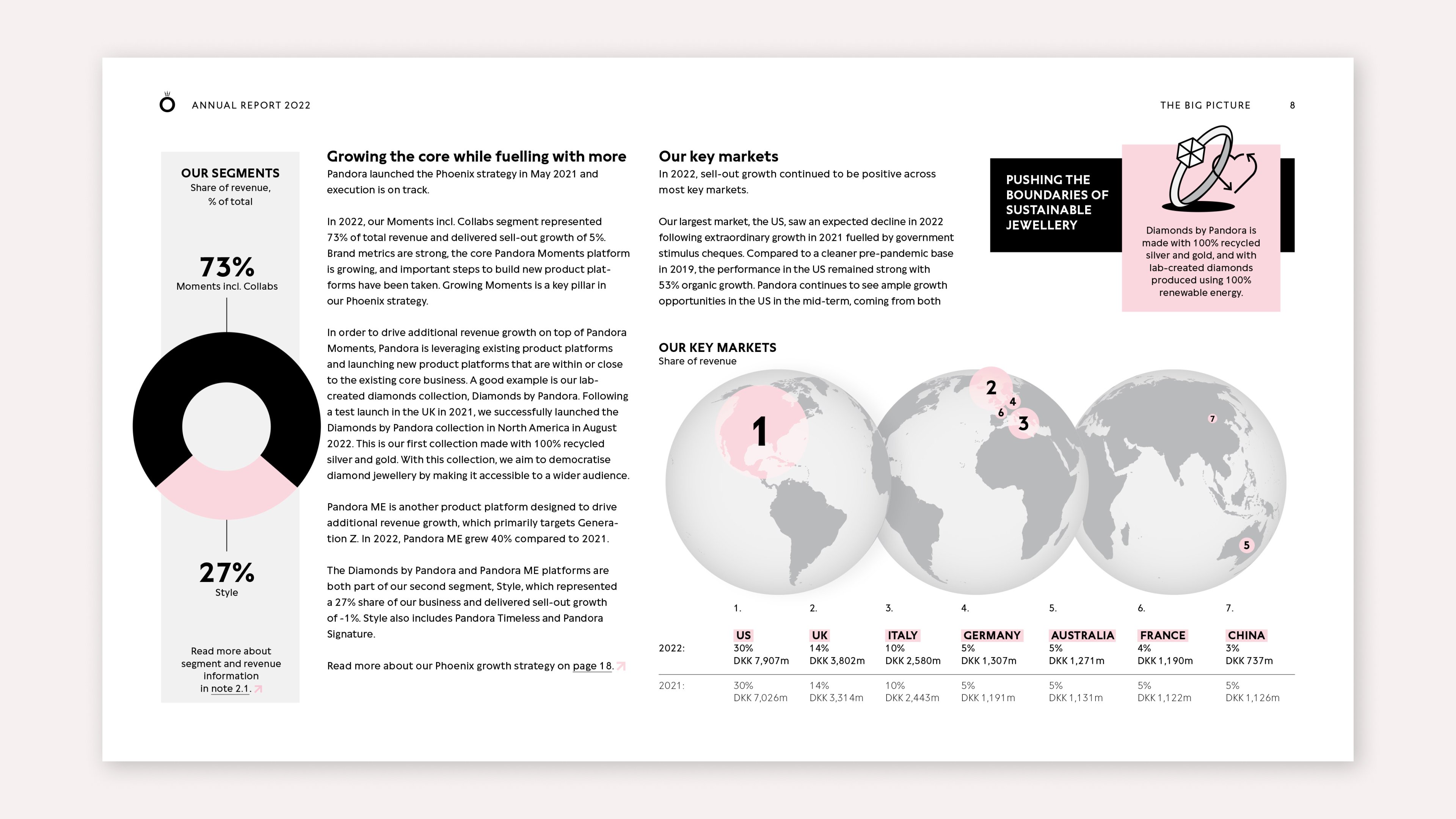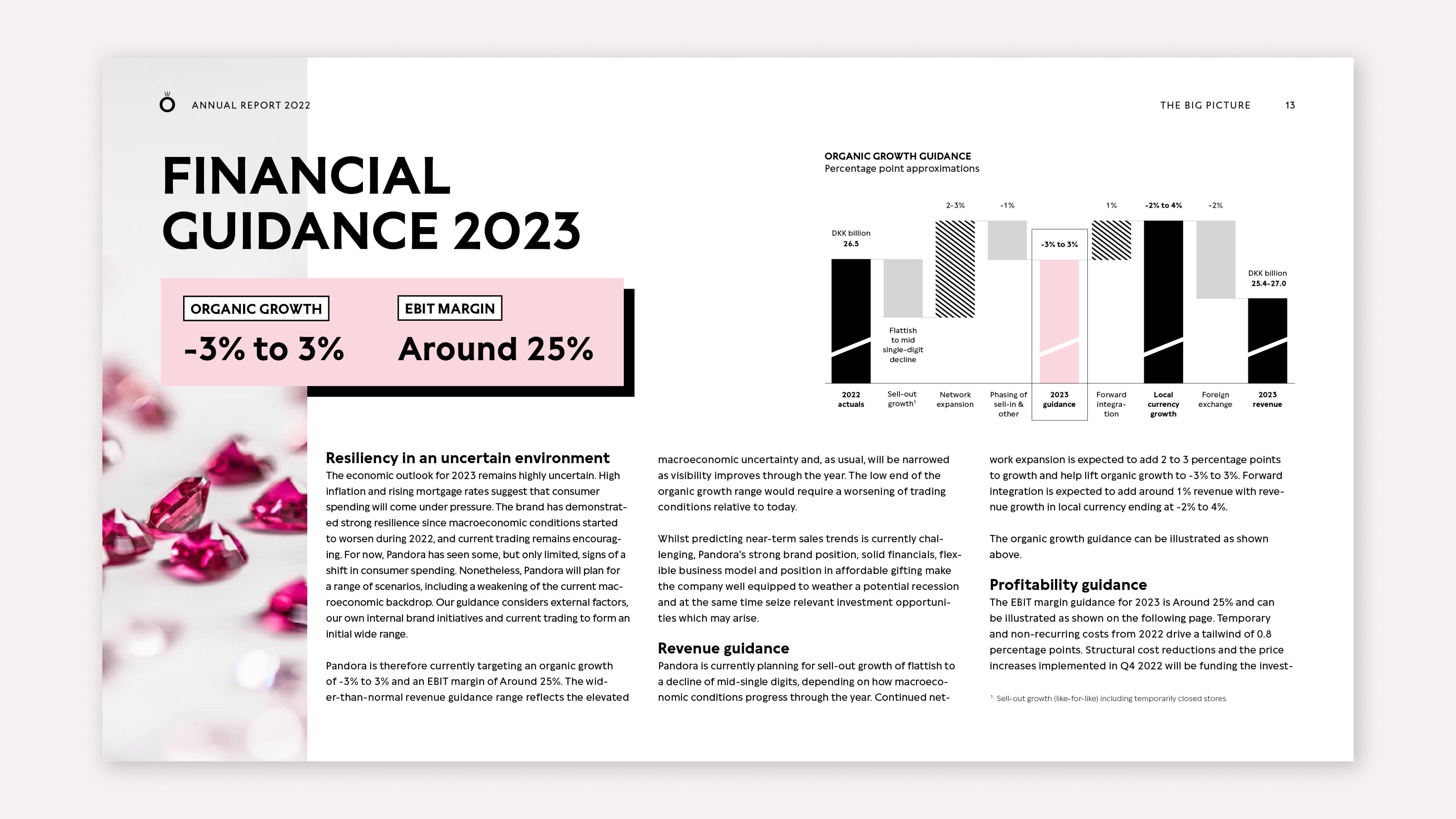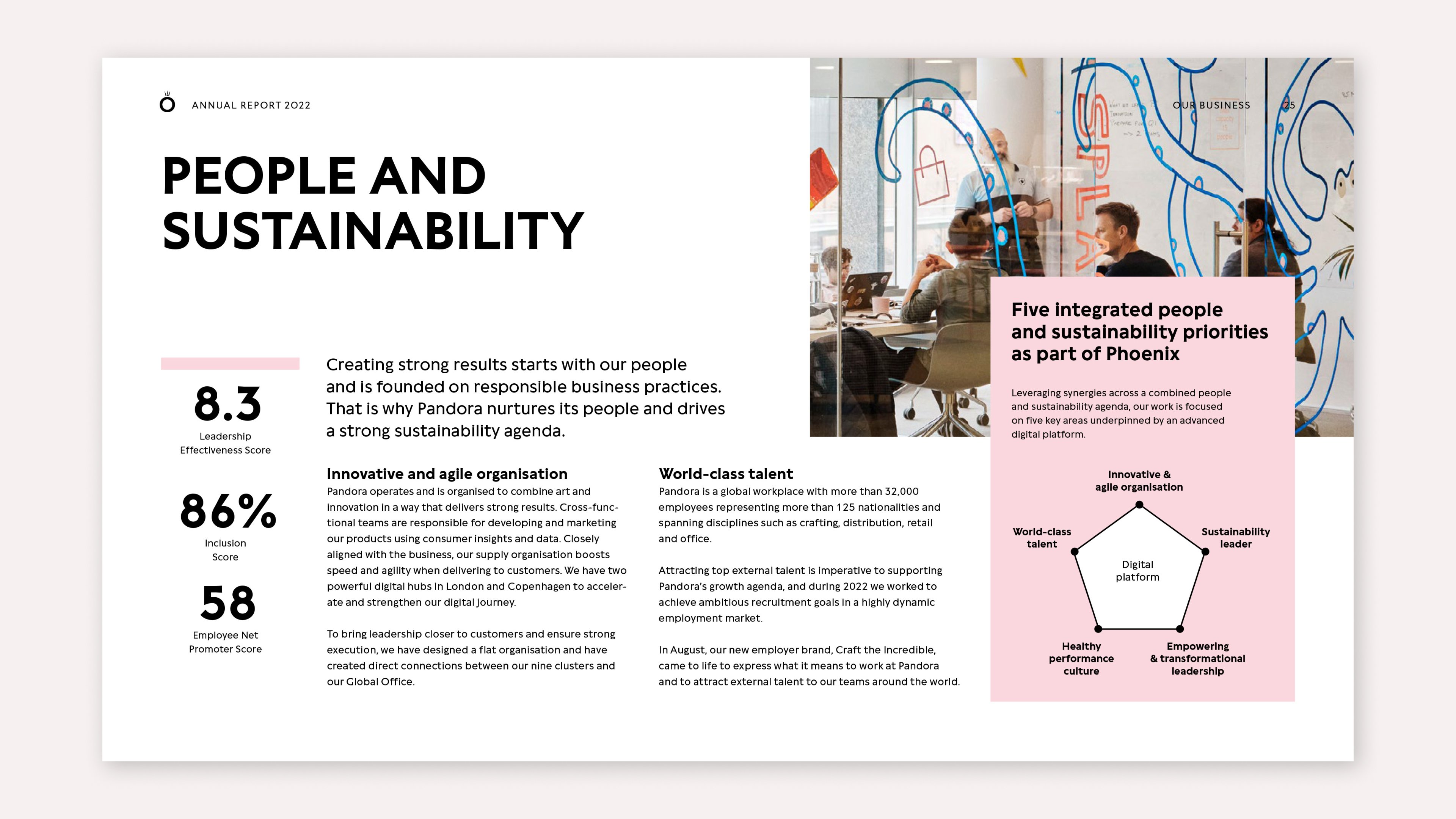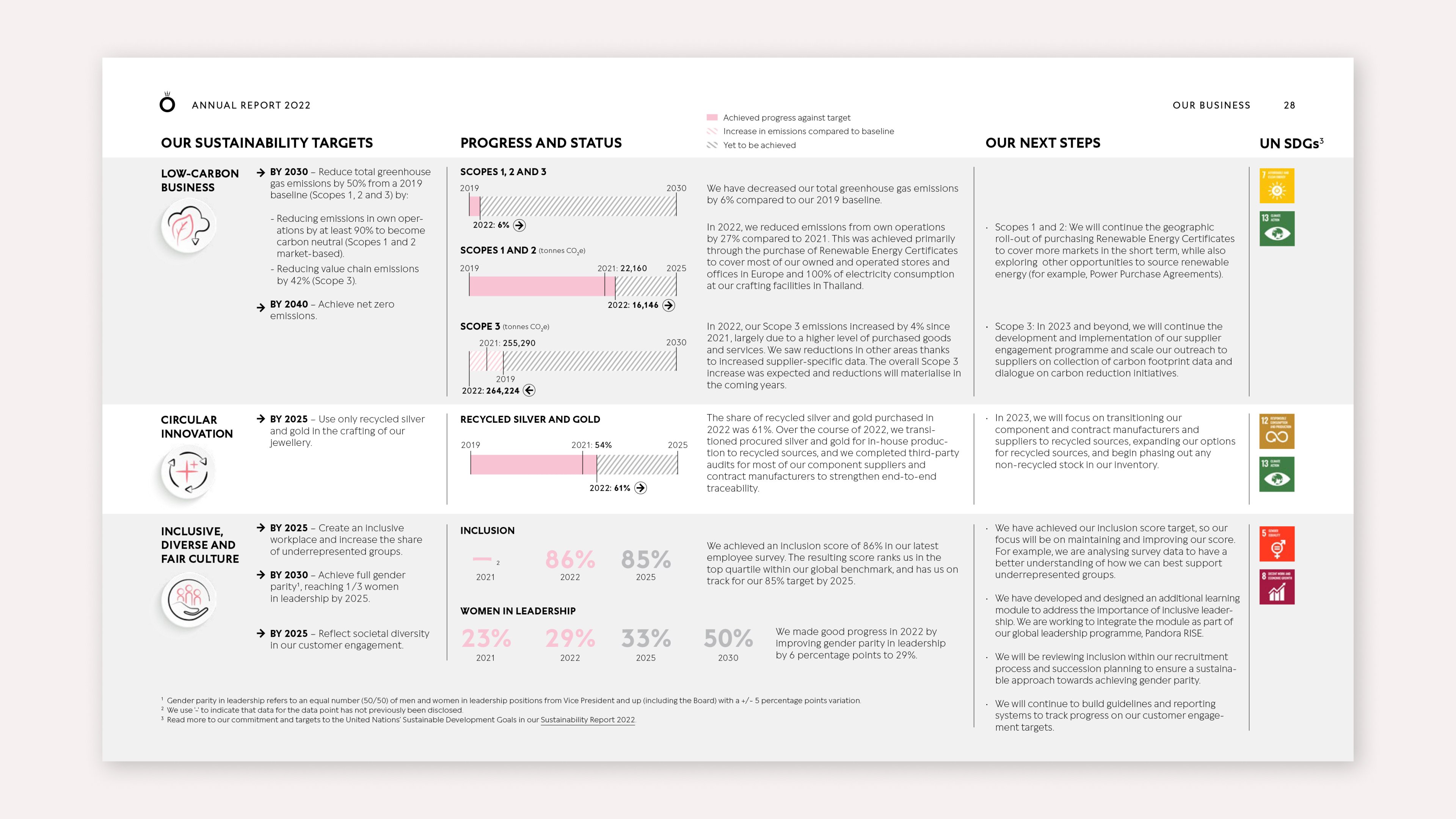Annual Reporting: Performance is key
Written by
It might sound self-explanatory, but we can’t say it enough — Annual reports are a valuable tool for companies to communicate their performance to stakeholders. What isn’t self-explanatory, though, is how you choose to display this performance.
The Annual Report season has come to an end. Or so it could seem. Just as we’re done reminiscing over the year that has just passed, the scouting for upcoming milestones and touchpoints begins. Committed to learning from our experiences, we continue our 365-day journey of annual reporting. During the course of six articles, we’ll present our most essential takeaways regarding performance, purpose, ESG, exposure & opportunities, words & visuals, and format. Using our focus model — How key stakeholders prioritise content and communication in annual reports as our backbone. Here’s what to focus on when scoping your company’s performance in the reporting season of 2023.
Creating a great annual report for your company is an excellent way to showcase your achievements and share your story with stakeholders. They offer a comprehensive overview of the company’s financial position, strategic direction, and overall performance over the past year. In the research for our study Trends in Danish corporate reporting vol.2 — Understanding key stakeholders made in collaboration with Simply Revolution, we asked analysts, investors and key employees how they interact with annual reports and where to focus. If you zoom in on professional investors, the message is unambiguous. Financial performance is the most essential piece of information in your annual report:
“
Information about strategy and business models is important. If there is no proper foundation for profit creation, then there is no meaning.
Analyst
M&A specialist
And whilst you’re communicating about your performance, you might as well look further back than the past year:
“
“Understanding a company’s history over the past 10–15 years is as important as knowing their projections for the next five years.”
Analyst, Private banking.
To satisfy your professional readers, you have to provide information about your performance over the past years as well as predictions for future growth.
Regarding employees, a company’s performance equals the likelihood of personal prospects. Hence current employees read annual reports to get a deeper understanding of the company they work for and for a potential new employee to learn more about the prospects for an exciting career opportunity. This — evidently — requires information about a company’s performance:
“
You want to work in a company that has enough resources to support your professional development. If they have bad figures, they probably do not have the resources for me to be able to make a difference.
Employee
Senior compliance manager
In other words: Sharing your company’s achievements not only celebrates the company’s successes but also serves as a way to demonstrate the company’s value to stakeholders. Transparency and accountability are cornerstones in your annual report. Companies can build trust and credibility with investors, customers, employees, and other stakeholders by providing a clear and detailed account of their performance.

Let’s exemplify it …
We’ve worked with 11 different companies crafting 8 annual reports, 2 integrated reports and 4 sustainability reports and a wide variety of other reports.
They all perform extraordinarily in their own right and on individually tailored levels. One that is particularly outstanding when it comes to showcasing performance in a transparent and manageable way is Pandora.
Pandora really excels in visibly distributing the company’s business insights and key performance indicators throughout the report. From information about different steps in the value chain on breakers, through small data snippets in separate articles, to sustainability strategy progress and overview.

In short
Four reasons why companies should communicate about their performance in their annual reports:
1. Transparency and Accountability: By providing a clear and detailed account of their performance, companies can build trust and credibility with investors, customers, employees, and other stakeholders.
2. Highlighting Achievements: Sharing your company's achievements not only celebrates the company’s successes but also serves as a way to demonstrate the company's value to stakeholders.
3. Identifying Challenges: Being transparent about potential challenges demonstrates the company’s willingness to acknowledge and address issues, which can help to build trust and increase confidence in the company’s leadership and decision-making.
4. Strategic Direction: By outlining the company’s goals and objectives, stakeholders can gain insight into the company’s priorities and plans for growth. This can help to align stakeholders’ expectations and create a shared vision for the future.

In conclusion, using the annual report as a platform to communicate your performance is essential to build trust, increase credibility, and demonstrate transparency and accountability to your stakeholders. By highlighting achievements, addressing challenges, and outlining strategic direction, companies can create a comprehensive and informative report showcasing their strengths and future plans.

Looking to bring your report up to speed? Talk to Kim Paulsen or Charlotte Madvig Schmidt.

Client Director & Partner
Kim Paulsen

VJ, PR & Communications Manager
Charlotte Madvig Schmidt
Related stories

